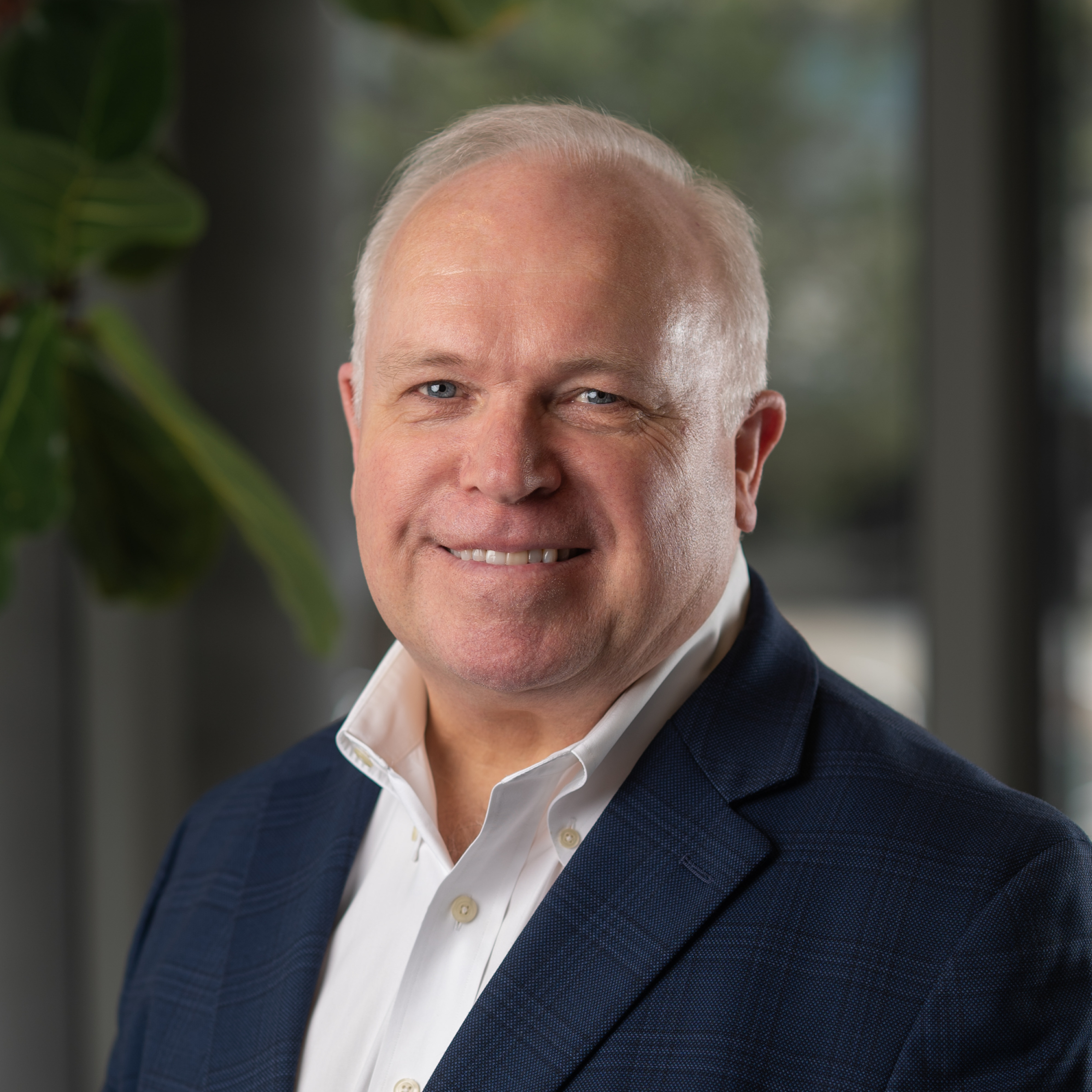All posts by Gary Stockton
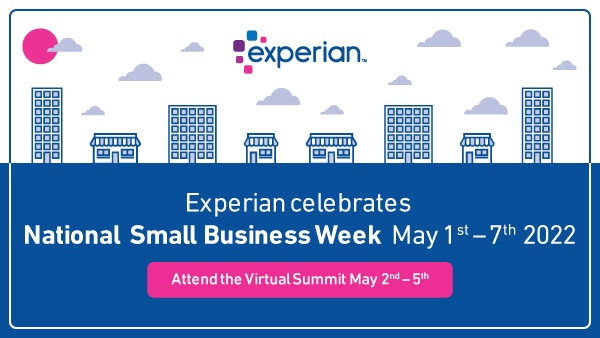
Experian is excited to be celebrating National Small Business Week - please set your calendar for the Virtual Summit May 2nd - 5th.
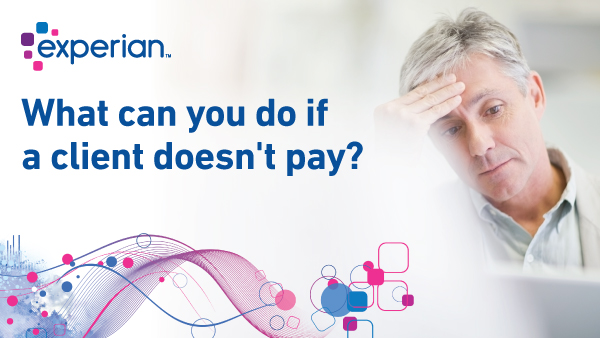
Starting a solo business is financially empowering, whether you do freelancing to earn extra income or build a full-time enterprise. But along with greater financial independence comes the risk of not being paid. Clients may pay late; some may not pay at all. When your client doesn't pay, what can you do? Late payments from clients happen for a variety of reasons. How you respond can determine whether you get your money—or keep the client. Reacting to a brief delay with the threat of a lawsuit, for example, could damage your client relationship needlessly. On the other hand, failing to follow up could result in hundreds of lost work hours and financial problems for you if your client never pays their bill. The following steps begin with simple reminders and escalate to more significant action. Keep reading for tips on how to prevent missed payments in the future. 1. Resend Your Invoice If there’s been a simple problem—the invoice got lost, the client’s bookkeeper is on vacation—resending the invoice acts as a reminder. Send one as early as the day after a payment was due if necessary. 2. Contact the Client If resending an invoice doesn’t trigger a response, respectfully reach out to your client with an email or a phone call and inquire about payment. They may tell you a payment has already been sent or that one will be issued soon. Make a note of when you should expect payment, along with a calendar alert to follow up again if payment doesn’t arrive as promised. 3. Stop Working for the Client If you sent the client a new invoice and spoke with them about the late payment by phone, it may be time to step up your actions if payment still hasn’t arrived as they said it would. If you’re continuing to do work for them, consider pausing until you receive payment. Continuing to work may just result in a bigger bill—one that you aren’t sure is ever going to be paid. It also takes time away from paying clients. Letting your client know that you can’t continue working without payment may prompt them to act quickly. Are you working on a product, such as a book manuscript or custom cabinetry? Don’t deliver it until you have payment in hand. 4. Send a Debt Collection Letter You can have an attorney prepare a debt collection letter for you or find a templated letter to modify online. A debt collection letter acts as formal notice and documentation that your client owes you money, including how much they owe and when it was due. In your debt collection letter, you might specify whether you’d be willing to set up a payment plan to help your client get back on track or let them know you plan to initiate formal debt collection action. Depending on your client’s reaction or lack thereof, you can send more than one of these letters, escalating the matter’s urgency. 5. Consider Your Next Steps It’s possible your client will come through with payment at any of the previous steps. But if you’ve made every effort to collect payment from your client and they still refuse to pay, you can try taking them to small claims court to recover your money. Be sure to hold on to any documentation, such as debt collection letters, asking the client to pay. You’ll need to prove you are owed the amount you claim by providing contracts, letters, receipts or other information noting the agreed upon amount for the job. You’ll also need to find out what the small claims dollar limit is in your state. You can also look into turning over the debt to a collection agency to collect payment. However, you’ll only see only a fraction of your payment if collections are successful because the agency will take a percentage of the amount collected (which may or may not be equal to what was owed. You may also decide simply to move on. The time and stress required to recoup your loss may not be worth it. If you’ve lost tangible goods, you may be able to write off your loss on your taxes. However, you won’t be able to deduct an unpaid balance for services—the IRS doesn’t allow it. How to Avoid Not Getting Paid in the Future It’s impossible to completely avoid the risk of being stiffed. Even a good client can suffer an unexpected financial downturn or a sudden life crisis, and it can be hard to know whether a prospective client is creditworthy. You can’t eliminate risk entirely but you can reduce it by following a few basic tips: Sign a contract with a payment schedule. Whether it’s prepared by the client or by you, a contract spells out the scope and cost of the work you’re proposing. It can also include a payment schedule with clear deadlines and late payment fees (or discounts for early payment). Especially with a new client, get paid as much as possible up front, or consider breaking the payments up to coincide with specific work milestones. Vet new clients before you take them on. Has a new client been referred to you by someone you know? Have they been in business for a long time or are they just starting? Do they have references you can call? If you’re unsure about a new client, think about the work you agree to as having a credit limit attached to it: Start with a $500 project then increase the size of the projects if things go well. Speaking of credit, you can also check a prospective client’s business credit report. The information in Experian's business credit reports is continually updated, always accessible and includes the Experian business credit score, credit trade payment information, corporate registration, business public records, key personnel, and a lot more. Make it easy for clients to pay. Accepting electronic payments or credit cards may give your clients helpful options to pay on time. You may also consider accepting a payment plan or partial payment from a client who’s having trouble paying an invoice. If you do, though, think twice before accepting future work from them. Building a Stronger Business The more you depend on money from your freelance work, the more critical it is to get paid—in full and on time. When clients pay late or don’t pay, your business and personal finances suffer. You may not be able to meet your business expenses or pay your personal bills. You risk falling behind in monthly credit card and loan payments. You may also have to use business or personal credit to make ends meet while you’re waiting on payments and may be stuck with debt if you’re never paid. Fortunately, most business transactions don’t go this way. By limiting your risk with upfront payments, smaller projects and frequent billing; using contracts that spell out work and payment terms clearly; and following basic steps to collect when payments run late, you can reduce your chances of running into trouble. The risk of lost payments can also motivate you to build a cash cushion for your business—or your personal finances—so a late payment here and there is easier to manage. In these ways, the threat of late payments can make your business and your finances stronger, by making you a smarter business owner. About the author Gayle Sato writes about financial services and personal financial wellness, with a special focus on how digital transformation is changing our relationship with money. As a business and health writer for more than two decades, she has covered the shift from traditional money management to a world of instant, invisible payments and on-the-fly mobile security apps. Gayle began her career as a staff writer for Entrepreneur magazine. As an independent publisher, she edited and produced a series of personal finance magazines for credit union members and THINK, an executive magazine for the credit union industry.

Women-owned small businesses make up roughly 34 percent of new business starts. They are among the businesses most heavily impacted by the pandemic, and minority-owned women-led small businesses were the fastest-growing segment coming out of COVID. Despite solid growth, Women business owners face significant barriers to success. We studied a large dataset of women-owned small businesses to understand their unique needs and challenges. The result is a fascinating look at a powerful small business segment. In this talk you will learn: · Credit behaviors · Top industry sectors · Areas of opportunity for lenders Register for Webinar
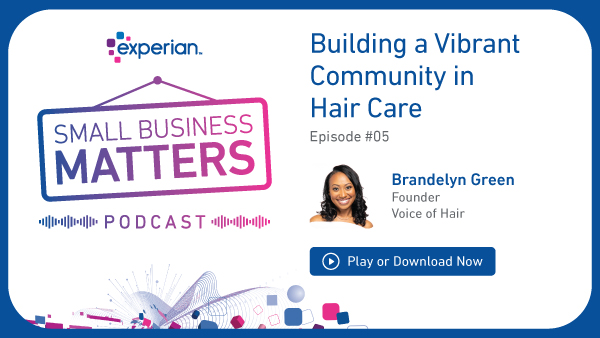
Brandelyn Green, the entrepreneur behind Voice of Hair, knows a thing or two about building a community. Her thriving hair care business is exploding.
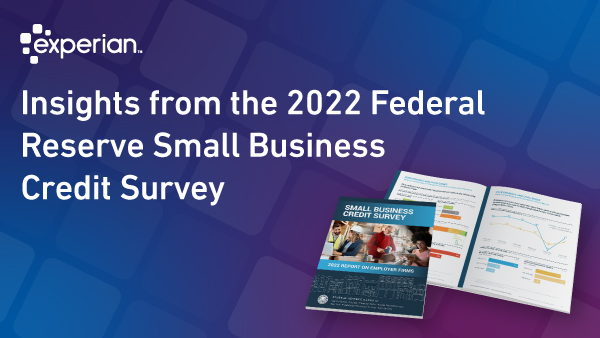
Gary Stockton: In November of last year, the federal reserve banks conducted the Small Business Credit Survey. In all, they surveyed nearly 11,000 small businesses to ask them about their financial condition, whether they had sought financing in the prior 12 months, and what the effect the pandemic had on their business. The results of that survey have just been published in the 2022 Report on Employer Firms. Emily Wavering Corcoran is the Program Manager of the Small Business Credit Survey (SBCS) in the Community Development Department of the Federal Reserve Bank of Cleveland. The SBCS is a national collaboration among the 12 reserve banks of the Federal Reserve System, to gather timely information on small business, economic conditions, financing needs and credit availability. And we're recording this interview on Friday, March 4th, 2022 ahead of the Federal Open Market Committee meeting. Emily, welcome to the Small Business Matters podcast. Emily Wavering Corcoran: Thank you so much, Gary. Glad to be here. Gary Stockton: Well, one of the most heavily impacted small business segments is leisure and hospitality. Could you tell us what you found out about the financial condition of businesses in this sector? Emily Wavering Corcoran: Absolutely. So as you've mentioned in sort of the background you gave about the survey, the SBCS is fielded every fall. The 2021 SBCS, of course, was fielded from September through November, 2021. And it gathered information from over 17,000 small business owners across the country, including nearly 11,000 small businesses with employees. So that's the segment of small businesses that this report in particular focuses on. As you mentioned, the survey provides detailed information on performance and financing conditions from the perspective of small business owners. In addition to the standard questions about business conditions, debt and credit, the 2021 survey included questions about the ongoing effects of the pandemic, including its impact on revenues and employment, operating challenges, including workforce challenges and applications for pandemic related financial assistance. We also, for the second year in a row, included a question asking small business owners about the financial condition of their business, which is what you just referenced. They were given five options to select from. They could say their business was in excellent financial condition, the financial condition was very good, good, fair, or poor. Out of all employer small businesses, 59% were in poor or fair financial condition at the time of the survey, so, fall 2021. Now, when we drill down more deeply, we see that firms owned by people of color, firms with fewer employees, and firms in particular industries, including leisure and hospitality, were most likely to be in fair or poor financial condition. So relative to small businesses in other industries, leisure and hospitality firms were more likely to be in fair or poor financial condition. So three out of four firms in leisure and hospitality. In many ways, this is not surprising, right? Leisure and hospitality includes restaurants, hotels, entertainment venues. So many of those small businesses that were particularly hard hit, especially early in the pandemic. And that shows the persistent impact of that initial hit and trying to weather the pandemic as a firm that really relies on face-to-face contact, on having people come into the business--All of those things really hold for firms in the leisure and hospitality sector. Gary Stockton: More than half of the firms were in fair or poor financial condition at the time of the survey. And nearly all firms faced at least one operation or financial challenge in the prior 12 months. With so much government assistance made available, why do you think so many small businesses are still struggling? Emily Wavering Corcoran: Yeah, I think for this question, it's important to think about the counterfactual. What might SBCS data look like had pandemic related financial assistance not been made available? I don't know the answer to that question, no one does, but the fact that business performance numbers are tempered, and that many small businesses continue to face operational and financial challenges, even with pandemic related financial assistance, suggests that in the absence of that support, aggregate outcomes for small businesses, and of course the resulting SBCS data to measure those outcomes, could have been much worse. Gary Stockton: Can you talk a little about which businesses applied for additional financing vs. those who did not, and some of the reasons why they did not apply? Emily Wavering Corcoran: The Small Business Credit Survey identifies applicants or small businesses that did apply for credit, and non-applicants, or small businesses that did not apply for credit. So we get both sides of the experiences, right? Apply for credit, don't apply for credit. And then we can drill down to more deeply understand both of those sets of firms: firms that did apply, firms that chose not to apply. So 36% of firms did apply for financing. And 64% did not apply for financing. When you look at just that set of non-applicants, firms that did not apply for financing, 46% of those businesses did not apply because they had sufficient financing. So they did not need to apply for a loan or a line of credit because they had ample financing through other streams. Then 14% of that non applicant pool were discouraged, meaning that they did not apply because they believed that they would be turned down. When you look again, one step further, more deeply at those discouraged firms, a majority of those firms, or just over half of those firms, believed they would be turned down because of weak business financials. And then other reasons that those folks cited in the survey were lender requirements, the belief that lenders would not extend financing based on some characteristic of their business; previous denials and bad experiences in the past that made them discouraged about applying again, and missing documentation was also a relatively big factor for folks. Gary Stockton: You mentioned them being concerned about weak financials as a leading reason. Would that be a major concern when seeking government help through the PPP program? Or was it just maybe a confidence issue with that business owner? Emily Wavering Corcoran: I think both. Financials are certainly an important part of the credit application process. And so as we saw, business fundamentals being hard hit through the pandemic, that certainly played out in both folks deciding to apply for credit or not. And then also it played out in some of the outcomes that we saw for folks who did choose to apply for credit. Gary Stockton: Yeah. The other thing that we noticed in the report was that 2021 PPP outcomes were worse than 2019, particularly in that leisure and hospitality sector. And particularly with black and brown businesses, do you know what's going on there? Emily Wavering Corcoran: Yeah. So again, I would point to some of the information in the report about financial condition, about annual revenues and employment. Certain segments of firms being really hard hit, and then that playing out in different ways in terms of credit access. We did, as you point out, we saw both a decline in firms seeking PPP and a decline in firms receiving PPP. The why is an incredibly complex question to answer, right? Definitely not fully answered by SBCS data, but it is at least partially explained by the relatively smaller size of the third round of PPP funding compared to the two prior rounds, as well as additional eligibility requirements for PPP. But again, not fully answered by SBCS data, certainly something that I'm sure additional research will look at in the years to come. Gary Stockton: What was the most surprising thing to you about the 2022 survey? Was there one thing that really stood out to you as, as important? Emily Wavering Corcoran: Good question, but to be honest, “surprised” doesn't quite capture what I felt about any of the survey results as we were digesting the data and really examining things. In many ways, I feel like the survey data add greater nuance and more robust evidence to ongoing narratives about small business hardship and resilience that we've been hearing about and talking about over the last two years at this point. instead of surprise, I would say that the results for me strengthened my resolve to continue collecting and producing this data so that we can continue to have structural information on small business credit experiences. Small business does matter, and of course, small businesses are on the road to recovery, but it appears to be a long and uneven road, but SBCS data will continue to be there as small businesses move forward. Gary Stockton: Well, Emily, I'd like to thank you for sharing your thoughts with our listeners. Where can they learn more about the great work going on at the Federal Reserve Banks? Emily Wavering Corcoran: I love that question. You can learn more about the Small Business Credit Survey in particular at www.fedsmallbusiness.org. I would also encourage your listeners to check out www.fedcommunities.org, which is a website that shares information across the Federal Reserve System on the great work that the Federal Reserve Banks are doing at the community level. Gary Stockton: Emily, thank you very much for your time. 2022 Small Business Credit Survey Note: We recorded this interview on Friday, March 4, 2022.
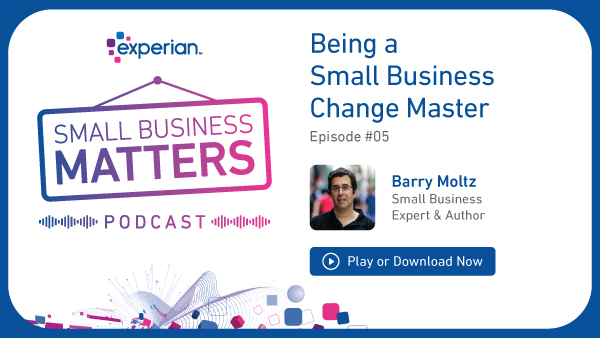
Barry Moltz joins us on Small Business Matters to talk about why change is so difficult for small business owners.
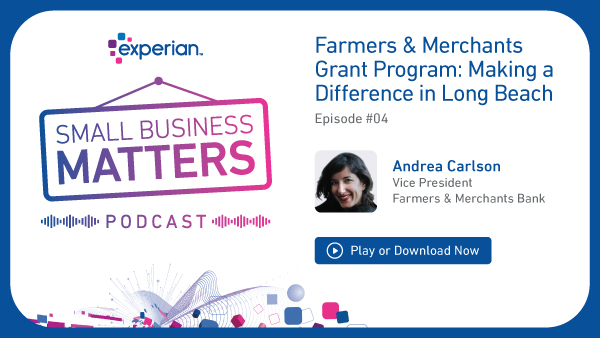
Farmers & Merchants (F&M) Bank of Long Beach, CA has awarded $60,000 to 22 local micro and small businesses since 2020. In the first year of the program, F&M Bank had 84 applicants. In the second year, more than 600. Recipients say these grants have come at the perfect time to help with challenges sometimes made even greater by the ongoing pandemic. (Farmers & Merchants Segment appears at 28:37) “There were a lot of small businesses in our community struggling, that were having to rethink how they do business and how to adapt to circumstances well beyond their control,” said Andrea Carlson, Vice President at F&M Bank. “We were able to help more than 6,000 businesses through the SBA's Paycheck Protection Program (PPP), but we still saw a gap in assistance for businesses that didn't meet the criteria [for that program]," she said. Applicants did not have to be members or clients of F&M Bank to be eligible to receive the grants. To qualify, a business had to have existed for at least two years, have fewer than 20 employees, be in the bank’s geographical service area, and have less than $1 million in revenue. Microbusinesses Fall Through the Cracks "F&M Bank is really a jewel for small businesses. People tend to forget about these microbusinesses, that make less than $2 million a year, have less than 20 employees. But there are a lot of us like that, we are a growing part of the greater economy, but we are so often overlooked," said Omar Hernandez, a disabled veteran and owner of Global Urban Strategies, a PR firm for municipalities. “Because of the pandemic, everything really just stopped. So our cash flow just stopped. So we worked off our cash reserves, and then our savings. For me, our employees are the most important component of my business. We have to invest in our people. This grant was so important to us, because we were able to keep getting everyone paid on time.” Hernandez says he plans to become a customer of F&M Bank now. “The way I see it is, they invested in me, so why not go and do the same thing and do business with them?” Tatiana Pacheco owns Andrea's Healthy Kitchen, a juice bar in Rosemeade, CA. Just as sales began slowing down at the beginning of the pandemic, her business location suffered a colossal fire. "It took us one year to reopen. Even though December is our slowest month, we were able to keep our employees paid for that month. This grant came at just the right time," Pacheco said. Black-Owned Businesses Disproportionately Harmed by Pandemic A study1 from the early months of the pandemic showed 41% of Black-owned businesses closing their doors. Thirty-two percent of Latinx-owned businesses closed. Compared to about 17% of white-owned businesses. So F&M Bank gave priority to grant applicants whose businesses serve underprivileged neighborhoods, and/or are owned by people of color. Jala Eaton of On My Own Financial is an attorney and financial and estate planner on a mission to close the racial wealth gap. She started her business prior to the pandemic offering financial education and estate planning to business owners and families. “For me, these funds are going to build infrastructure and software to help me continue to serve my clients virtually. So online scheduling software, client management systems, even paying the annual fees to be an LLC,” Eaton said. “There is a big disparity—40% of Black businesses went out of business last year, because of COVID and lack of access to resources and money. That’s why I’m so passionate about talking to my community about money and being strategic with it.” Eaton said she's also planning on hiring her first employee this year. F&M Bank was founded in 1907 on the principles of honesty, integrity, the home, the church, and service above self. Each year F&M Bank gives away more than $1 million to charities, non-profit organizations, and religious entities within the communities they serve. Find them on social media, and learn more about the other extraordinary entrepreneurs who received grants as part of this program. And thanks to Farmers and Merchant’s Bank for investing in the community. Link to study: https://siepr.stanford.edu/sites/default/files/publications/20-022.pdf Got a story about Diversity, Equity, and Inclusion? Email us at smbmatters@experian.com. Listen to the full episode on any of these platforms:
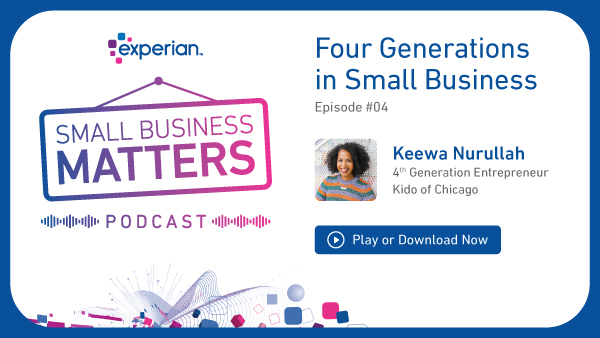
In this episode of Small Business Matters we focus on generational entrepreneurship with our guest Keewa Nurullah. She is a fourth-generation small business owner.
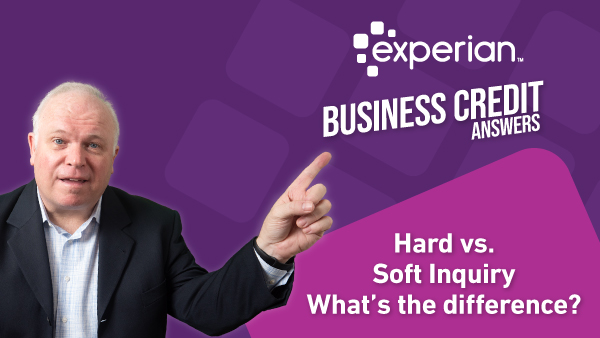
There are two types of credit inquiry, hard and soft. How do hard and soft credit inquiries impact your business credit score? We explain the difference.
